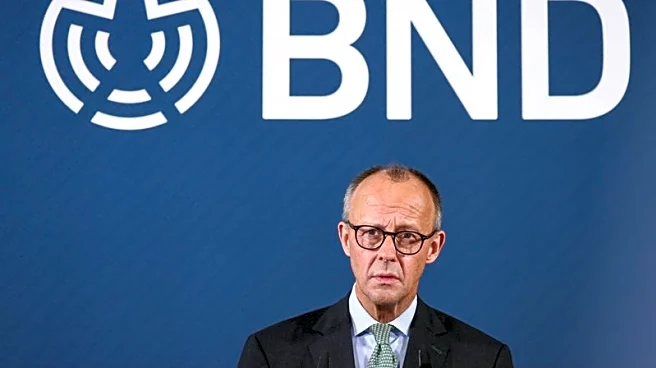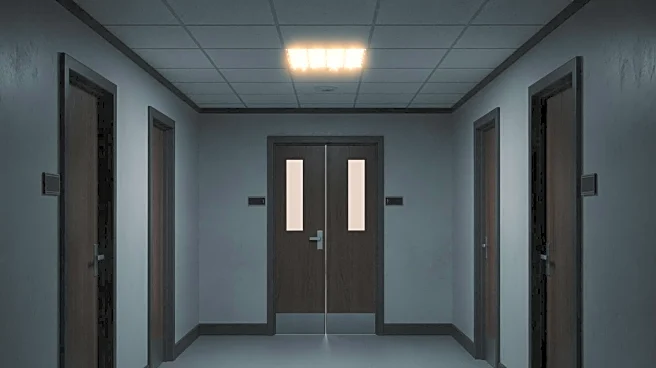BERLIN (Reuters) -Germany needs its BND foreign intelligence service to operate at a level that reflects the country's size and economic weight to deal with hybrid attacks from increasingly aggressive rivals, Chancellor Friedrich Merz said on Thursday.
In a speech marking the inauguration of Martin Jaeger as head of the BND, Merz said the foundations of Europe's security architecture that had ensured peace, freedom and prosperity for decades had become fragile.
Jaeger, 61, was appointed after serving
as ambassador to Ukraine since 2023 as Germany became Kyiv's second-biggest weapons supplier to fight the Russian invasion. He replaces the long-serving Bruno Kahl.
European security officials including in Germany have warned of the increased threat of hybrid attacks by Russia in the wake of the Ukraine war that began in February 2022, including espionage and sabotage targeting critical infrastructure. Russia has typically denied this.
"Seldom in Germany since World War Two has the security situation been so grave," said Merz.
"We are on a daily basis fending off hybrid attacks against our infrastructure: acts of sabotage, espionage, disinformation campaigns. We once again have systemic rivals and adversaries – and they are becoming increasingly aggressive," he said, without naming any country or organisation.
To counter this, Germany must be more proactive and needs the advantage of knowledge provided by a strong civilian, military and technical foreign intelligence agency, he said.
"Given the responsibility we bear in Europe in view of our size and economic strength, it is therefore our goal to ensure that the BND operates at the highest level in terms of intelligence," he said.
(Reporting by Madeline Chambers; editing by Matthias Williams)
















